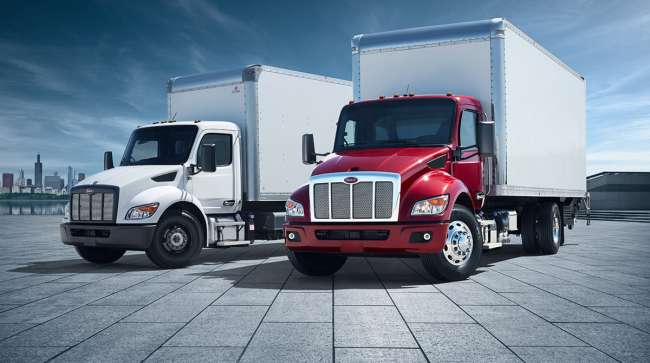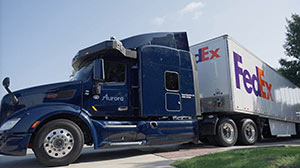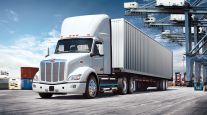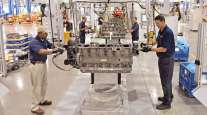Senior Reporter
Paccar Sees Net Income Soften, Revenue Rise in Q3

[Stay on top of transportation news: Get TTNews in your inbox.]
Paccar Inc. reported mixed results with lower net income and higher revenue in the third quarter as undelivered new trucks stacked up but its parts segment notched record revenue.
Net income for the period ended Sept. 30 was $377.7 million, or $1.08 per diluted share, compared with $385.5 million, $1.11, in the same period last year.
Revenue climbed to $5.15 billion compared with $4.94 billion a year earlier.

Feight
Paccar Parts revenues hit a record $1.26 billion, up 24% compared with a year earlier, and pretax income in the segment also set a record at $280.8 million. The company’s financial services pretax income set a record at $120.1 million.
Total truck revenue in the quarter dropped to $3.4 billion compared with $3.5 billion a year earlier, led by $3 billion generated in the U.S. and Canada.
The global company delivered 32,800 new trucks in the quarter, with 10,000 still offline, and 17,200 of the deliveries were in the U.S. and Canada, down from 20,700 a year earlier. The deliveries should increase globally into the low 40,000s in the fourth quarter depending on the supply of materials, the company noted.
Bellevue, Wash.-based Paccar reported U.S. and Canada Class 8 truck industry retail sales are estimated to be in a range of 230,000-250,000 trucks for 2021, and 250,000-290,000 vehicles in 2022 — assuming there are improvements in the supply chain.
The company noted its Peterbilt Motors Co. and Kenworth Truck Co. brands combined achieved a 29.6% U.S. and Canada market share through September.
“The economies and freight markets continue to be robust in all of Paccar’s geographic markets,” Paccar CEO Preston Feight said during the Oct. 26 earnings call.
Paccar is having a tremendous year of new product introductions, and demand for the new Kenworth, Peterbilt and DAF [its European brand] trucks is excellent, he added.

A Paccar tractor is equipped with self-driving technology to haul FedEx loads between Dallas and Houston. (Aurora Innovation Inc.)
“Although build is still expected to be limited by semiconductor supply in the fourth quarter, the good news is we are starting to see improvements in the supply chain,” Feight said.
He said Paccar has seven battery-electric vehicle models available and orders in hand for several hundred, and 90 already operating at customers, including fuel cell or battery-electric models.
Among other company highlights in the quarter were:
- Peterbilt and Kenworth began production of their new medium-duty trucks in the third quarter. Feight called the launches of new trucks the best in the company’s history.
- Asked during the earnings call about what Paccar is experiencing with its autonomous truck development program, Feight said there eventually will be autonomous vehicles across all platforms and brands.
- He expects Paccar trucks will offer a choice of various technology companies’ versions of autonomous driver software. A truck maker needs a good dealer network, connected services and the ability to repair the truck, he said. Autonomous vehicles “are a great opportunity for Paccar to grow.”
- Paccar’s initial autonomous-enabled trucks configured with the Aurora Driver are hauling FedEx loads between Dallas and Houston, a 500-mile round trip along the I-45 corridor. The trucks operate autonomously, with a backup driver for additional safety.
Paccar Chief Financial Officer Harrie Schippers said research and development expenses in 2021 will be $320 million to $330 million. That is expected to increase to $350 million to $400 million in 2022 “to support clean diesel, zero emissions, autonomous and connected truck programs.”
Want more news? Listen to today's daily briefing below or go here for more info:




